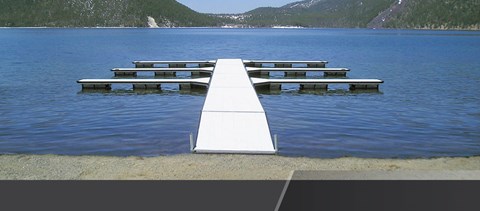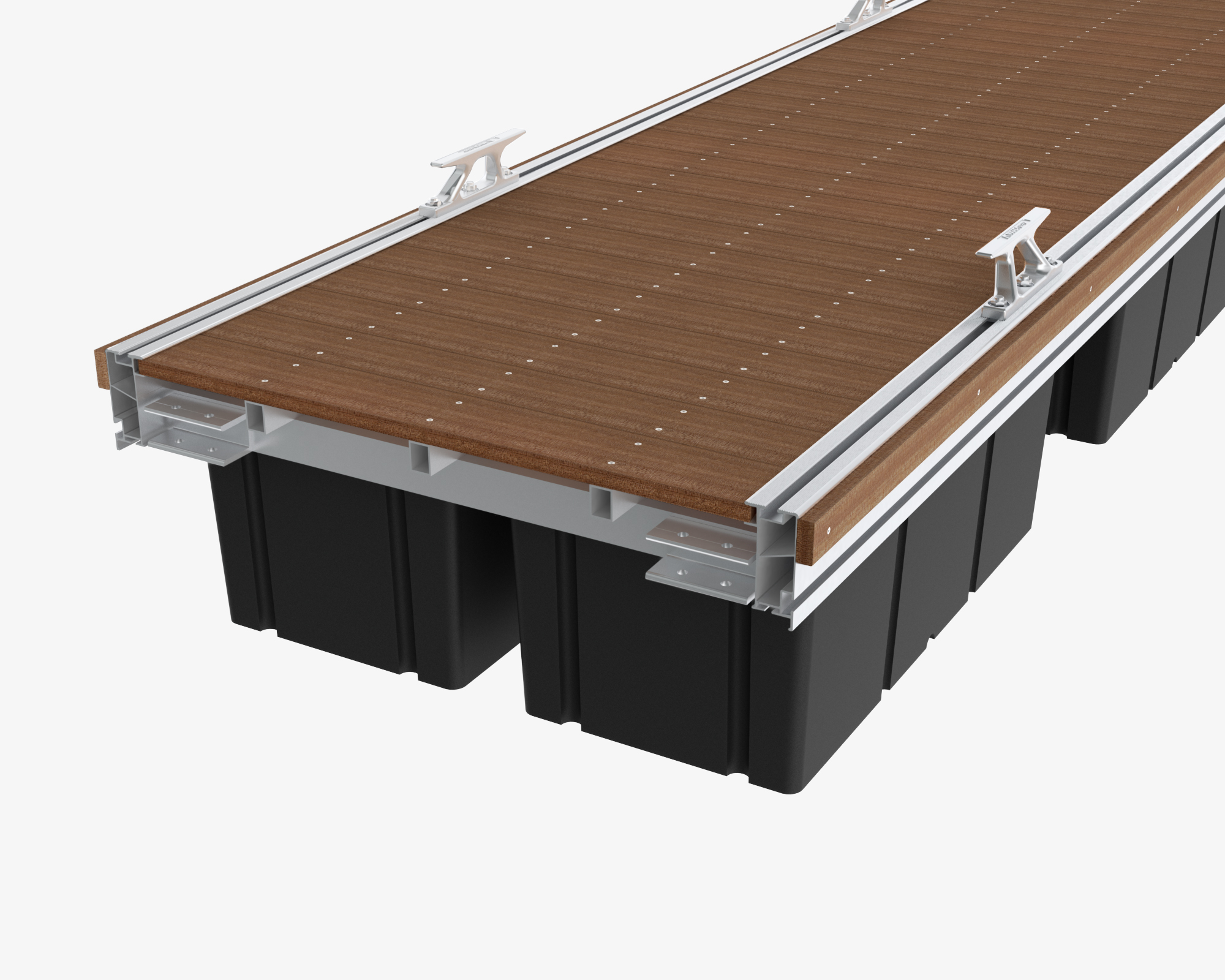Just how to Select the Right Floating Dock Builder for Your Custom Dock Needs
Just how to Select the Right Floating Dock Builder for Your Custom Dock Needs
Blog Article
Why Floating Docks Are the Perfect Option for Your Waterside Needs
Floating docks existing a compelling solution for waterside requirements, especially due to their versatility to varying water degrees and their durable, modular layout. These structures not only boost capability for both commercial and entertainment objectives however also supply personalization options customized to details demands. Additionally, their eco-friendly materials add to sustainability efforts. As we discover the diverse advantages and applications of floating docks, it ends up being apparent why they attract attention in the realm of waterfront facilities-- particularly when thinking about the long-term advantages they offer for numerous stakeholders.
Trick Benefits of Floating Docks
The versatility of floating docks offers various advantages for waterside applications, making them a significantly prominent option amongst marina operators and property programmers. One of the primary advantages is their versatility to changing water degrees, which enables them to stay practical in different settings, consisting of lakes, rivers, and seaside areas. Unlike conventional fixed docks, floating docks can increase and drop with the trends and seasonal modifications, ensuring consistent availability.
Additionally, floating docks are normally simpler and cheaper to mount and keep. Their modular style assists in fast assembly, lowering labor costs and building and construction time. Additionally, the materials made use of in floating dock construction are often resistant to corrosion, guaranteeing long life with very little upkeep.
Safety is an additional essential benefit; the resilient nature of these docks decreases the threat of mishaps during boarding and getting off, making them especially appealing for family-oriented facilities. Their ecological influence is reduced than that of fixed structures, as they do not interfere with aquatic environments. Jointly, these advantages setting floating docks as a remarkable remedy for a range of waterfront requirements, lining up with both operational efficiency and ecological factors to consider.
Ideal Applications for Different Tasks
Adaptability is a trademark of floating docks, making them ideal for a wide variety of activities throughout numerous waterside settings. These functional structures can function as optimal systems for entertainment tasks such as boating, angling, and swimming. Their resilient nature enables easy accessibility to watercraft, enabling smooth embarkation and disembarkation, while additionally offering a steady area for fishermens to cast their lines.
In industrial settings, floating docks assist in the loading and discharging of goods, fitting both tiny and big vessels. They are especially beneficial in areas with rising and falling water levels, guaranteeing that procedures stay uninterrupted. In addition, floating docks can be utilized for beachfront dining and enjoyment, offering a breathtaking and unique experience for patrons.
Environmental applications are likewise notable; floating docks can work as monitoring platforms for wild animals seeing or as docking stations for research vessels taken part in environmental researches. As marina developments become a lot more widespread, these docks use a practical service for enhancing ability without substantial land changes. Eventually, the flexibility of floating docks makes them a favored choice for anybody seeking efficient and useful waterside remedies.
Style and Modification Options
Floating docks not only accommodate diverse activities yet also use an array of layout and customization alternatives that improve their functionality and visual appeal. These functional frameworks can be customized to fit specific waterfront requirements, whether for household, industrial, or leisure purposes.
One trick facet of personalization is the option of products. Choices vary from high-density polyethylene to aluminum, each providing one-of-a-kind benefits in regards to sturdiness and upkeep. Furthermore, the configuration of the dock can be adapted to match various water degrees and ecological problems, ensuring stability and safety.
Style attributes can include incorporated seating, railings, and lighting, which not only boost usability however also boost the appearance of the dock. Personalized colors and surfaces permit owners to match the dock with existing structures or personal preferences, producing a natural look for the waterfront.
Additionally, floating docks can be developed with modular sections, enabling easy expansion or reconfiguration as demands alter. This adaptability is especially valuable for expanding households or progressing business. On the whole, the considerable layout and modification alternatives available make floating docks a very versatile solution for any kind of waterside setup.
Setup and Maintenance Factors To Consider
Generally, successful installation and maintenance of floating docks need cautious planning and focus to information. Before starting setup, it is important to evaluate the certain site problems, including water deepness, wave action, and neighborhood regulations. This preliminary examination notifies the selection of products and layout, ensuring the dock will certainly withstand environmental tensions.

Upkeep is just as vital to lengthen the lifespan of the dock. Routine inspections ought to be carried out to recognize wear and tear, particularly on flotation tools, ports, and decking. Cleaning up the dock occasionally assists prevent the build-up of algae and debris, which can jeopardize surface area stability and looks.
Furthermore, seasonal prep work, such as removing devices and safeguarding the dock during extreme climate, can stop damage. By prioritizing proper installment and routine maintenance, owners can ensure their floating dock continues to be a practical and dependable waterside remedy for several years ahead.

Ecological Impact and Sustainability
The ecological influence of floating docks is an important consideration for waterfront tasks, as these structures connect directly with marine communities. floating dock builder. Unlike conventional fixed docks, floating docks lessen disturbance to the substratum, enabling natural sediment movement and lowering disintegration. Their style enables for water circulation below, promoting healthy and balanced water settings and supporting regional wildlife
Numerous floating docks are built from lasting products, such as eco-friendly the original source composites and recycled plastics, which minimize the carbon footprint related to manufacturing. Additionally, Read More Here modern styles incorporate attributes that improve environmental sustainability, such as absorptive surface areas that assist in water filtering and decrease contamination.
Floating docks additionally supply an ideal system for habitat repair by supporting the development of aquatic vegetation and offering shelter for fish and other aquatic microorganisms. By consisting of attributes like fish habitats and immersed plantings, floating docks can enhance biodiversity in the location.
On top of that, these structures can be designed to fit photovoltaic panels, giving sustainable power choices that even more reduce their ecological influence (floating dock builder). Overall, floating docks represent a lasting service that stabilizes human use of watersides with the preservation of crucial communities
Final Thought
In conclusion, floating docks present a highly adaptable and lasting remedy for varied waterside needs. Inevitably, the personalized attributes and ability for development further strengthen floating docks as an excellent read what he said option for any type of beachfront project.
Floating docks present an engaging option for waterside demands, especially due to their flexibility to rising and fall water levels and their durable, modular style. Unlike traditional set docks, floating docks can climb and drop with the trends and seasonal adjustments, ensuring consistent ease of access.
Jointly, these advantages position floating docks as a superior remedy for an array of beachfront requirements, aligning with both functional effectiveness and environmental factors to consider.
Generally, the extensive design and personalization alternatives readily available make floating docks a very versatile remedy for any kind of waterfront setting.
Unlike typical set docks, floating docks lessen disturbance to the substrate, allowing for natural debris movement and minimizing erosion.
Report this page